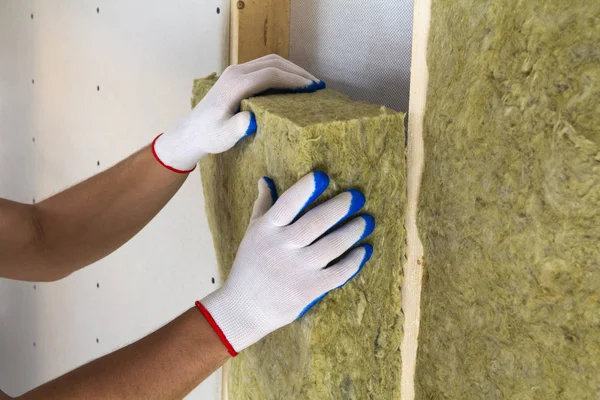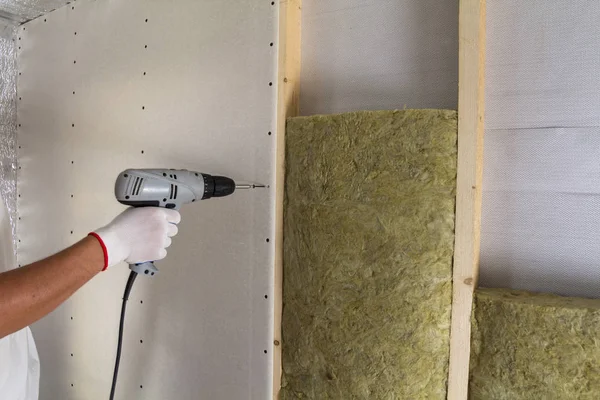Top Wall Insulation Techniques Every Homeowner Should Know About Today
Proper wall insulation is crucial for maintaining a comfortable indoor environment, reducing energy bills, and improving the overall energy efficiency of a home. Understanding the different insulation techniques available can help homeowners make informed decisions that suit their specific needs and budget. This article explores the top wall insulation techniques that every homeowner should be aware of.
Understanding the Importance of Wall Insulation
Wall insulation plays a vital role in regulating a home's temperature. It acts as a barrier to heat flow, keeping your home warmer in the winter and cooler in the summer. Effective insulation reduces the need for heating and cooling, leading to lower energy consumption and reduced utility bills. Additionally, it can contribute to a quieter indoor environment by reducing noise transmission from outside.
Types of Wall Insulation
Batt and Roll Insulation
Batt and roll insulation, also known as blanket insulation, is one of the most common types of wall insulation. It is made from fiberglass, mineral wool, or natural fibers. This type of insulation comes in large sheets or rolls that can be cut to fit between wall studs, rafters, and joists. Batt and roll insulation is easy to install and is suitable for both new construction and retrofitting existing walls.
Blown-In Insulation
Blown-in insulation consists of loose-fill materials such as cellulose, fiberglass, or mineral wool. This insulation is blown into wall cavities using special equipment, allowing it to fill gaps and crevices that might be missed with batt insulation. Blown-in insulation is particularly effective for insulating irregularly shaped areas and can be used in both new and existing homes.
Advanced Wall Insulation Techniques
Spray Foam Insulation
Spray foam insulation is a versatile and highly effective insulation technique. It involves spraying a liquid foam mixture that expands and hardens into a solid form. Spray foam insulation provides an excellent air barrier and has a high R-value, which measures its thermal resistance. This technique is ideal for sealing gaps and cracks, making it an excellent choice for insulating walls, attics, and basements.

Rigid Foam Insulation
Rigid foam insulation is made from polystyrene, polyurethane, or polyisocyanurate. It comes in large panels that can be cut to fit the dimensions of your walls. Rigid foam insulation has a high R-value and provides a continuous insulation layer, reducing thermal bridging (heat transfer through the framing). It is commonly used for exterior walls but can also be applied to interior walls in certain situations.
Considerations for Choosing Wall Insulation
Climate and Location
The climate and location of your home significantly influence the type of insulation that will be most effective. In colder climates, insulation with a higher R-value is necessary to keep the heat in. Conversely, in warmer climates, insulation that can keep the heat out is crucial. It's essential to consider local climate conditions when selecting an insulation type.
Budget and Installation Costs
The cost of insulation varies depending on the type and amount of material needed. Batt and roll insulation tend to be more affordable and easier to install, making it a popular choice for DIY projects. Spray foam and rigid foam insulation are more expensive but offer superior performance and energy savings over time. It's essential to balance your budget with the long-term benefits of each insulation type.
Benefits of Proper Wall Insulation
Energy Efficiency
Proper wall insulation significantly improves a home's energy efficiency by reducing heat loss in the winter and heat gain in the summer. This reduction in energy usage translates to lower heating and cooling bills, providing substantial cost savings over time.
Increased Comfort
Well-insulated walls help maintain a consistent indoor temperature, eliminating cold drafts and hot spots. This consistency leads to a more comfortable living environment throughout the year.

Environmental Impact
By reducing energy consumption, proper insulation helps decrease the carbon footprint of a home. Lower energy usage means fewer fossil fuels are burned to generate electricity, contributing to a cleaner and more sustainable environment.
Enhancing Insulation Performance
Proper installation and maintenance are critical to ensuring the effectiveness of any insulation system. Here are some tips to enhance the performance of your wall insulation:
Sealing Gaps and Cracks
Even the best insulation can be compromised by gaps and cracks in walls, windows, and doors. Sealing these openings with caulk or weatherstripping can prevent air leaks and improve the overall efficiency of your insulation.
Proper Ventilation
Adequate ventilation is essential to prevent moisture buildup and maintain indoor air quality. Ensure that your home has proper ventilation systems in place, such as exhaust fans and vents, to allow moisture to escape and fresh air to circulate.
Regular Insulation Inspection
Regularly inspecting your insulation for signs of damage or wear can help identify issues early and prevent energy loss. Look for signs of moisture, mold, or pest infestation, and address any problems promptly to maintain the effectiveness of your insulation.
Additional Tips for Optimal Insulation
- Choose the Right R-Value: Ensure the insulation meets or exceeds local building codes for thermal resistance.
- Consider Climate Needs: Select insulation types based on the specific climate and weather conditions of your region.
- Professional Installation: For advanced insulation techniques like spray foam and SIPs, consider hiring professional installers to ensure proper application and performance.
- Check for Moisture Issues: Address any existing moisture problems before installing new insulation to prevent future issues.
- Energy Audits: Conduct an energy audit to identify areas of your home that may benefit from additional insulation or improvements.
Address: 56 Yellowbox Dr, Craigieburn VIC 3064, Australia.
Phone: 03 8339 7111

